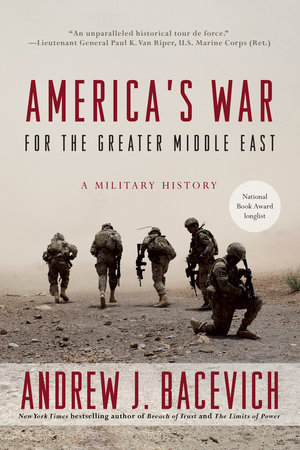I WAS TOO YOUNG AND MY PARENTS TOO politically moderate to attend demonstrations protesting the invasion of Iraq in 2002 and 2003, but I knew the protesters’ signs from watching the news. The most powerful one, by far, read NO BLOOD FOR OIL. Its effect rested on its ability to make two arguments at once: that the Bush Administration’s pious rhetoric about spreading democracy and its dark warnings about nuclear weapons were insincere, and that the thirsty gas tanks of America’s SUVs did not justify a war. The war’s real purpose was to remove a belligerent dictator whose erratic behavior threatened US access to Middle East oil. If Saddam Hussein lacked weapons of mass destruction, and if his alleged connections to al Qaeda were unsubstantiated, then the US had no business invading a sovereign nation. For me, the sign’s appeal did not depend on its being correct. What mattered was that it identified Bush as a liar — this obviously was correct — and tried to make sense of a war that otherwise struck me as inexplicable.
According to Andrew Bacevich’s new book, America’s War for the Greater Middle East: A Military History, the NO BLOOD FOR OIL people were correct — and thirty years too late. Unlike many journalists and historians who see the wars in the Middle East as a series of isolated conflicts that happen to have taken place in a single region over several decades, Bacevich, a career Army officer turned military historian and foreign policy critic, sees a sustained military campaign that began with Jimmy Carter and continues today. “From the end of World War II to 1980, virtually no American soldiers were killed in action while serving in [the Greater Middle East],” Bacevich writes. “Since 1990, virtually no American soldiers have been killed in action anywhere except the Greater Middle East.”1 In attempting to explain why and how this happened, he describes the US’s current situation in the Greater Middle East as the product of many errors of many kinds: strategic and tactical blunders, fashionable military theories that did not live up to their billing, failures to appreciate the political limits of what military force can accomplish, and missed opportunities to restrain a military apparatus that expands the scope of its mission whenever possible.
A self-described Catholic conservative, Bacevich attended West Point, served in the Vietnam War, and in 1991 was the commanding officer at Camp Doha in Kuwait when an accidental explosion injured dozens of GIs and severely damaged the base. The circumstances surrounding what followed are unclear — some veterans online have praised Bacevich’s handling of the explosion, while others have criticized his leadership — but he was not the commanding officer at Camp Doha for long. It was around this time that Bacevich’s doubts about American military and foreign policy orthodoxy began to emerge. In one essay, he recalls an October 1990 visit to East Germany, the place his teachers and military commanders had always described as “the most advanced and successful component of the Soviet Empire.” What he found “more closely resembled part of the undeveloped world”: decrepit infrastructure, “forlorn” villages, “inedible sausages,” and remnants of the Soviet military force driving around in trucks that “dated from the 1950s.” The American portrayal of the enemy had been a hollow one. His worldview crumbling, Bacevich embarked on an academic career.
Since 2002, Bacevich has written six disciplined, focused, and coolly analytic books about the failures of US foreign policy. America’s War for the Greater Middle East is unique among them in bringing more than half a century of foreign policy into a single framework. It describes a conflict that started over material resources and evolved into a complex and wearying imperial adventure. America’s devotion to the Middle East did not make much sense in 2003, Bacevich argues; but it did in 1980, and the reason was oil.
